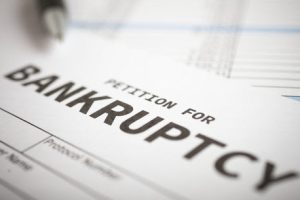Could Illinois Be The Next Puerto Rico?

Congress just allowed the island commonwealth, which faces about $123 in pension and bond obligations, to file a form of municipal bankruptcy. Could the Prairie State, which faces over $130 billion in pension debt alone, be next? The economic problems that brought Puerto Rico to this point, including a crippling recession, rampant government borrowing, and emigration, are eerily similar to the situation in Illinois.
What are some signs of bankruptcy, and what can a Chapter 7 or Chapter 13 petition do for a family?
When to File Bankruptcy
Fortunately, none of us face tens of billions of dollars in pension and other liabilities. However, largely due to circumstances beyond our control, many of us have more debts than we can afford to repay.
Timing is essential in a bankruptcy case. If the voluntary petition is filed too soon, the debtor may not have explored all available non-bankruptcy remedies; if the filing is too late, there may already be some debt-related damages, like tax liens, that even bankruptcy cannot undo.
If a family is more than two months behind on secured debts or has more than about $5,000 in unsecured consumer debts, the family should probably think about bankruptcy.
Banks consistently deny that they target some homeowners for expedited foreclosure proceedings, but there are indications that such a practice is real. Unfortunately for debtors, there is no way to know if their property is on the targeted list until the foreclosure notice comes in the mail. So, while most banks consider one missed car or house payment an unfortunate aberration, serious adverse action usually begins after the second missed payment.
Similarly, most families can afford to pay an extra few thousand dollars of credit card or medical debt if given sufficient time to do so. But since so many people live hand to mouth, a bigger debt bite is often too much to swallow.
Bankruptcy Benefits
They say that no one can turn back the clock, and in most instances, that’s true. But bankruptcy does turn back the financial clock, because it gives debtors fresh starts. Most individuals and families who successfully emerge from either Chapter 7 or Chapter 13 have no outstanding unsecured debts and are completely caught up on their secured debts, so instead of worrying about paying the bills, they can focus on rebuilding their credit ratings.
There are some specific benefits as well.
- – Automatic Stay: Moneylenders have a wide range of debt collection tactics that range from annoying and embarrassing (like letters and phone calls) to overwhelming and cripplings(like wage garnishment and foreclosure). Section 362 of the Bankruptcy Code stops all these things, at least in most cases.
- – Debt Discharge: Most all unsecured debts, like credit cards and medical bills, are wiped away from a repayment standpoint; some other types of debts, such as student loans, back taxes, and Small Business Administration loans, are dischargeable as well in many cases.
- – Repayment: Chapter 13 has a built-in protected repayment period of up to five years. Repayment is optional in Chapter 7 cases, because although they have no legal obligation to do so, debtors can still repay some or all of their discharged debts to improve their credit scores and satisfy their moral obligations.
Chapter 7 eliminates debts in as little as a few months; Chapter 13 both eliminates debts and allows for an extended repayment period that protected by the automatic stay.
Partner With Experienced Attorneys
Many people reading these words right now know, at least deep down, that they need to file bankruptcy. For a free consultation with an experienced bankruptcy attorney in Chicago, contact the Bentz Holguin Law Firm, LLC. After hours appointments are available.
Resources:
chicagotribune.com/news/opinion/editorials/ct-puerto-rico-bankruptcy-illinois-edit-0505-20170504-story.html
theatlantic.com/magazine/archive/2016/05/my-secret-shame/476415/


